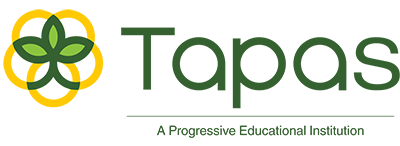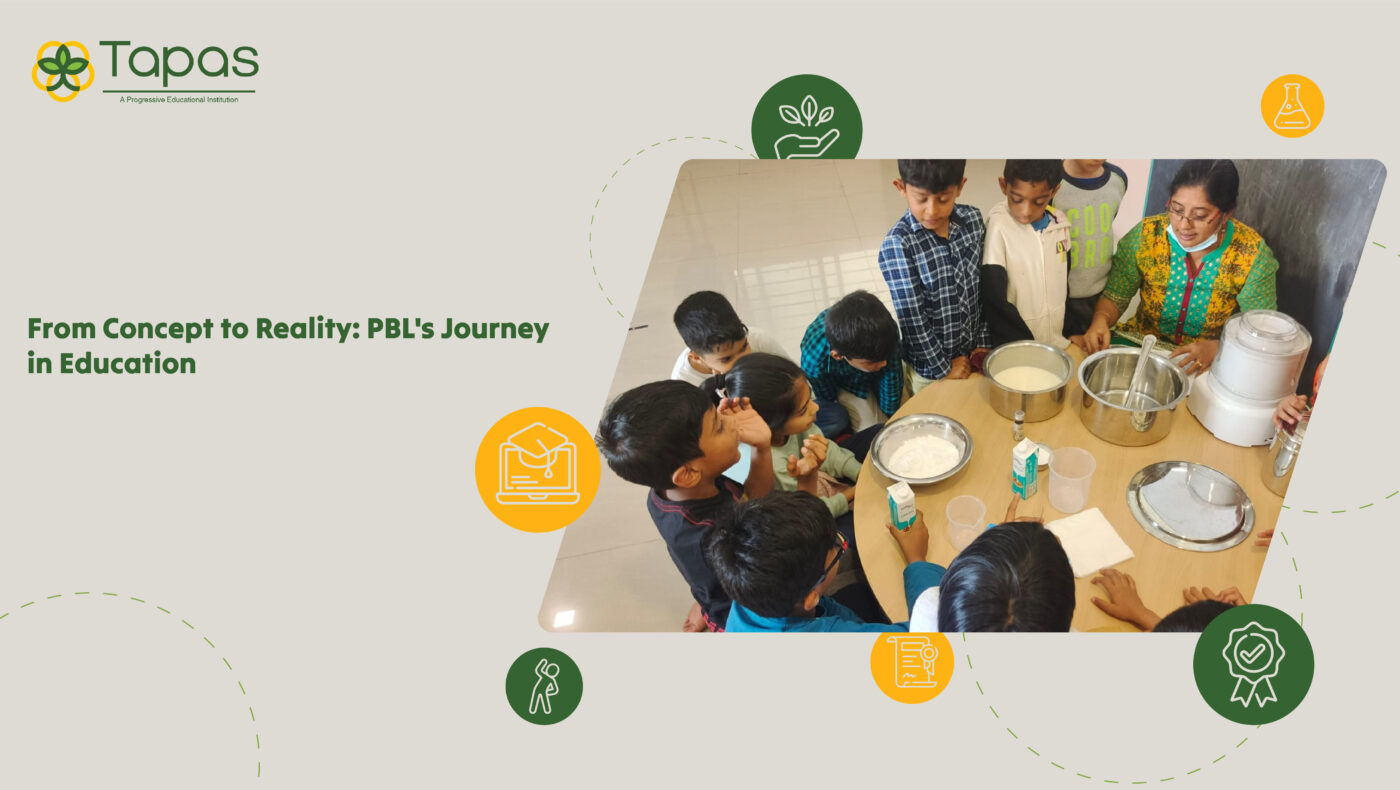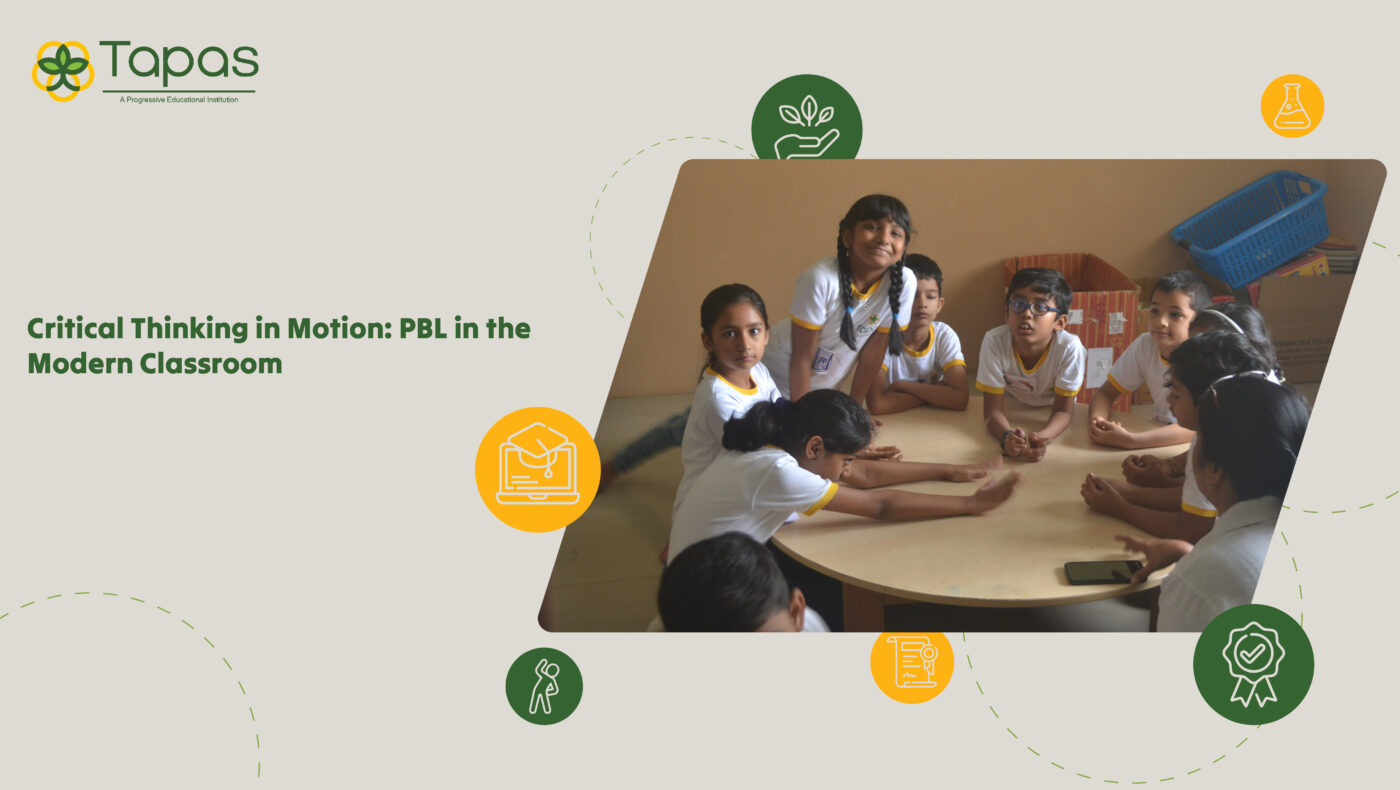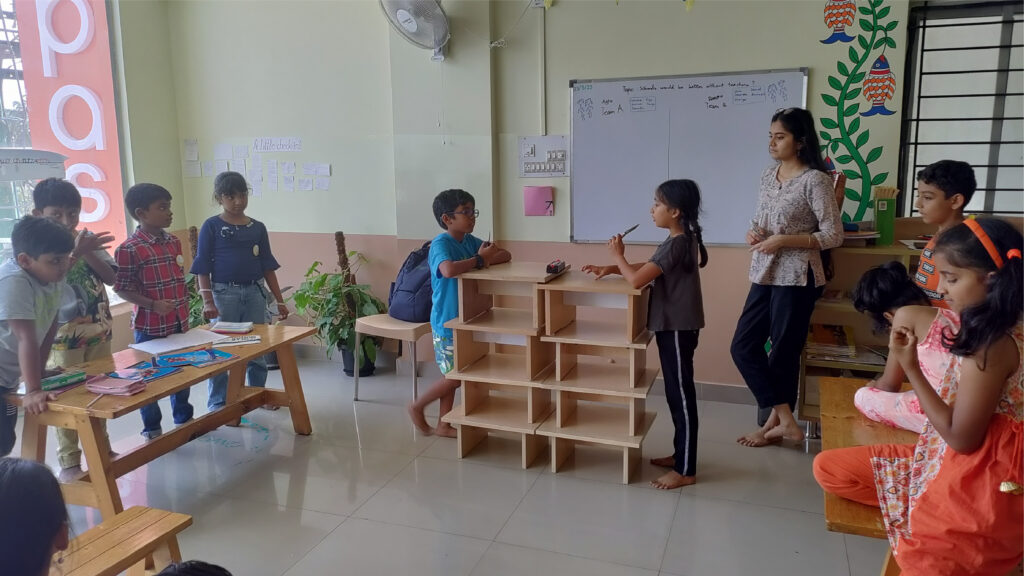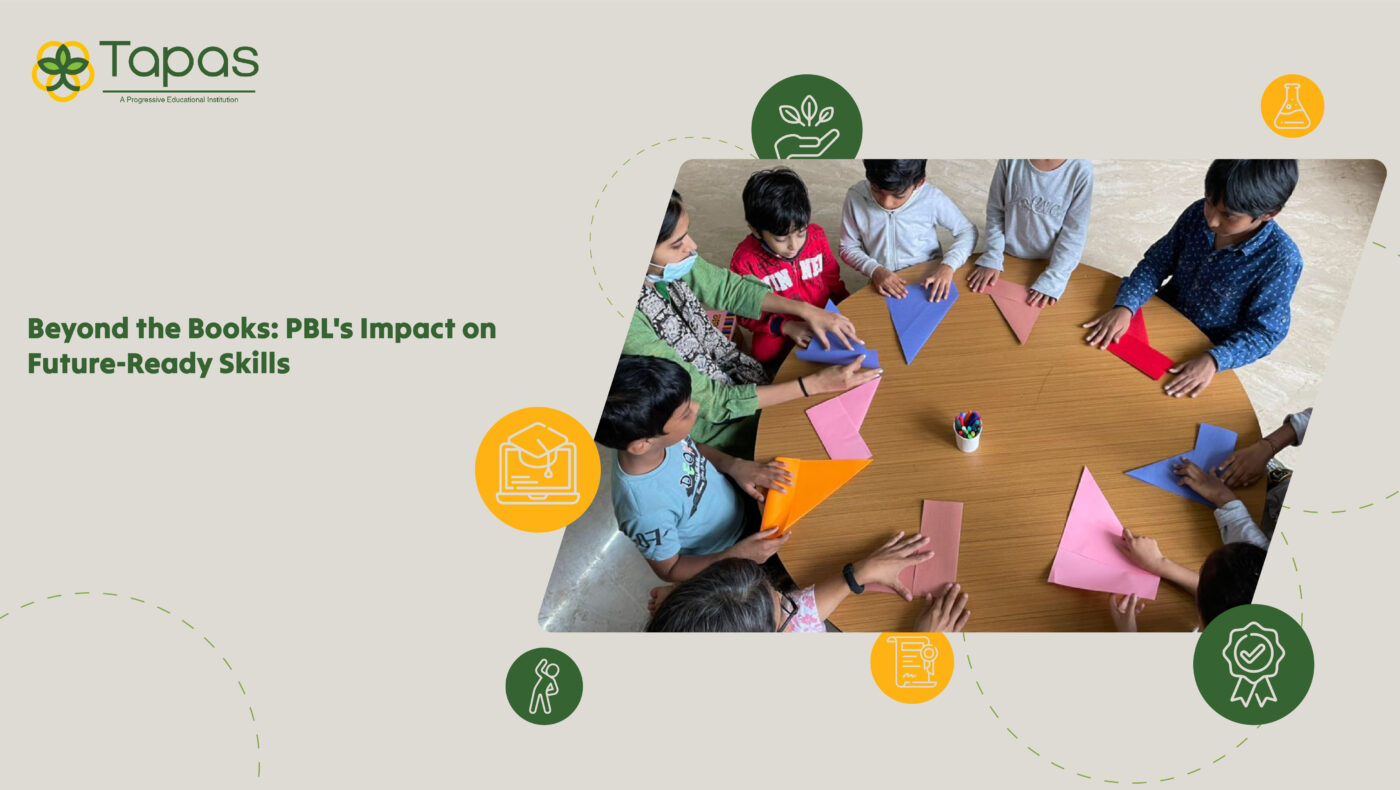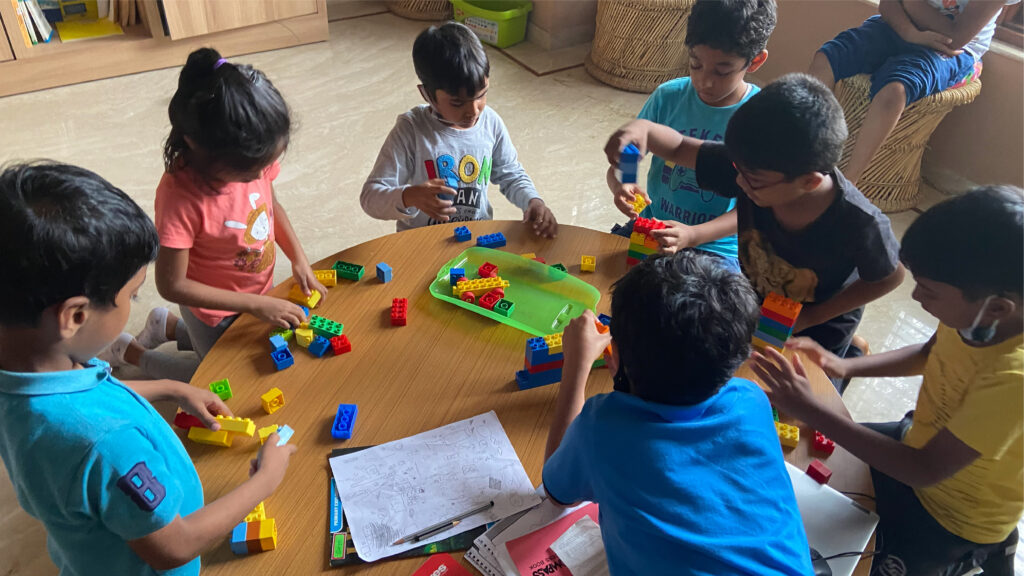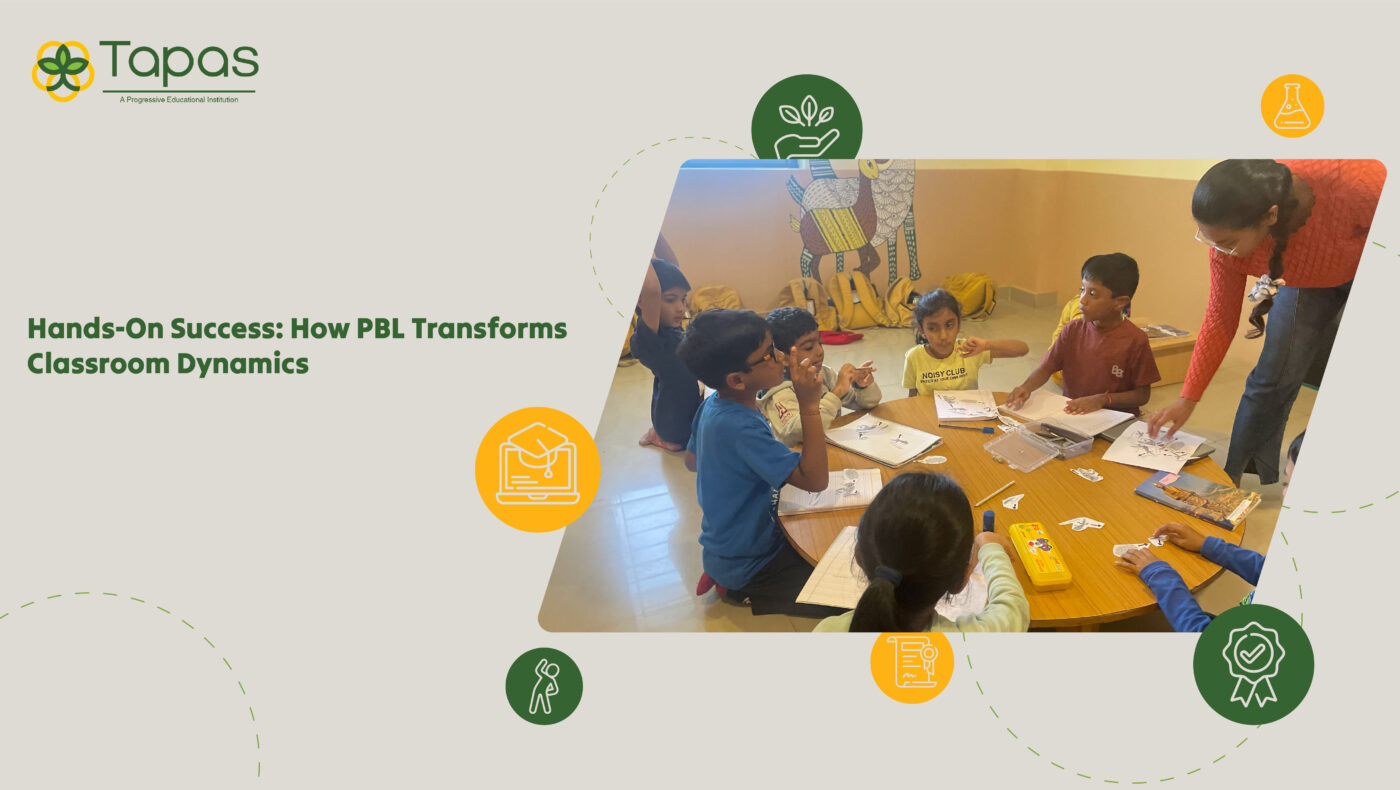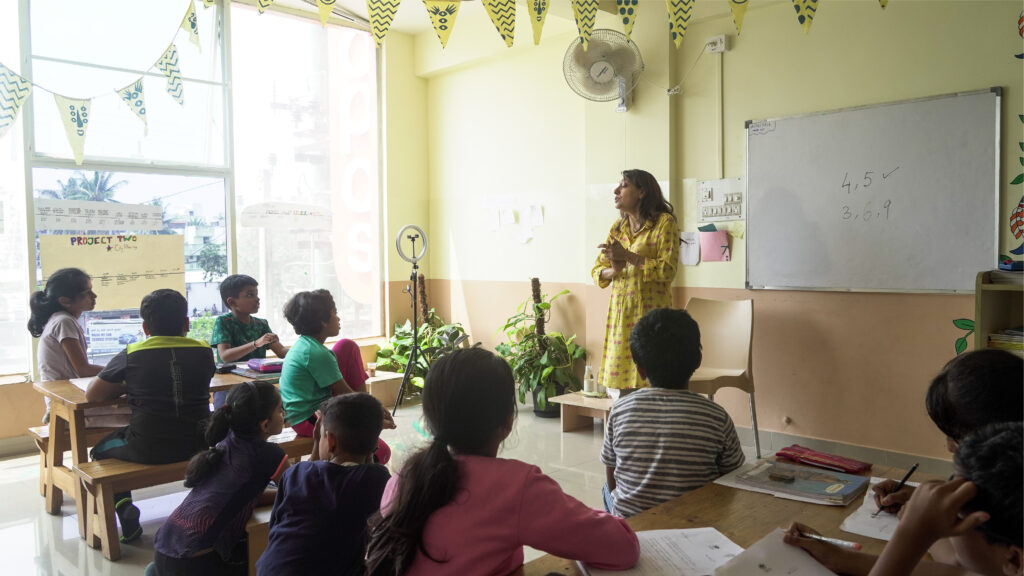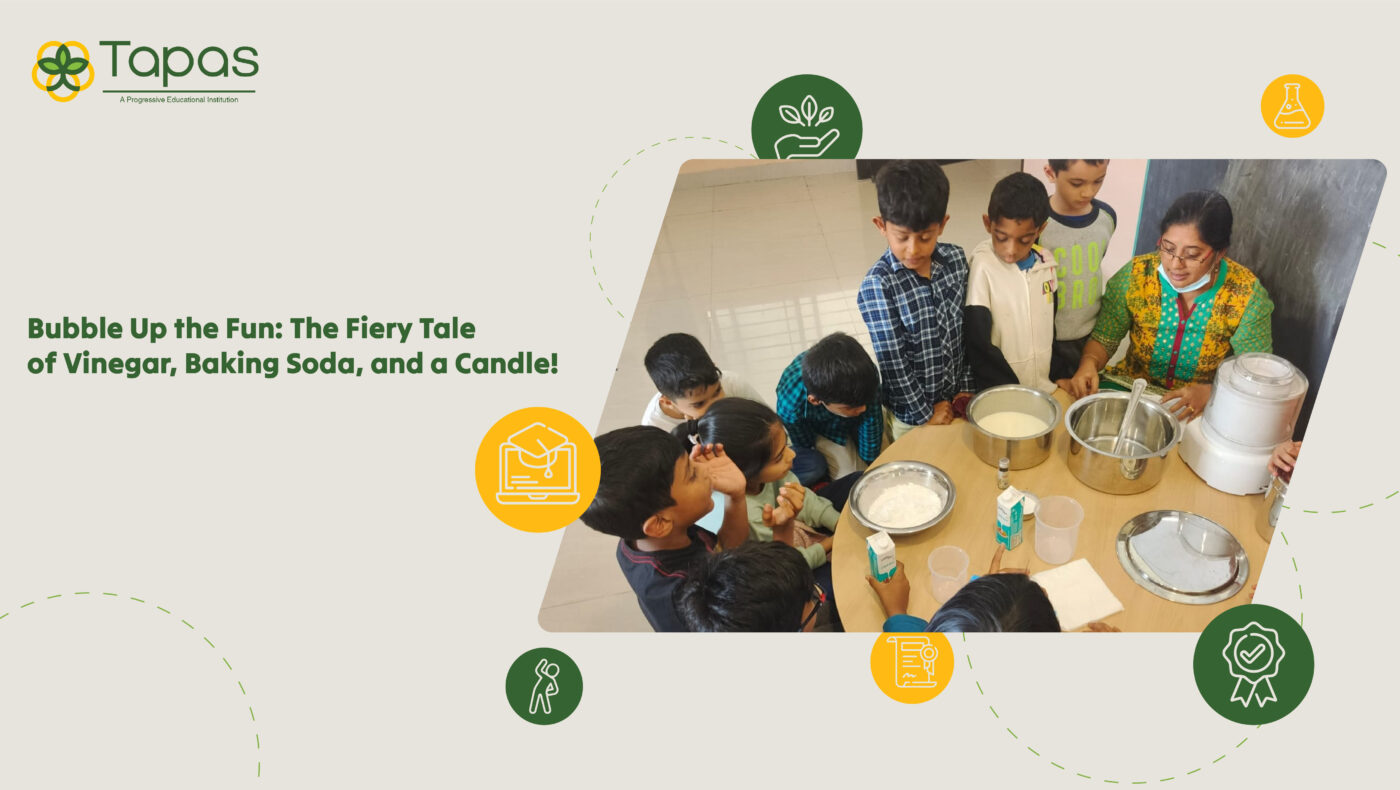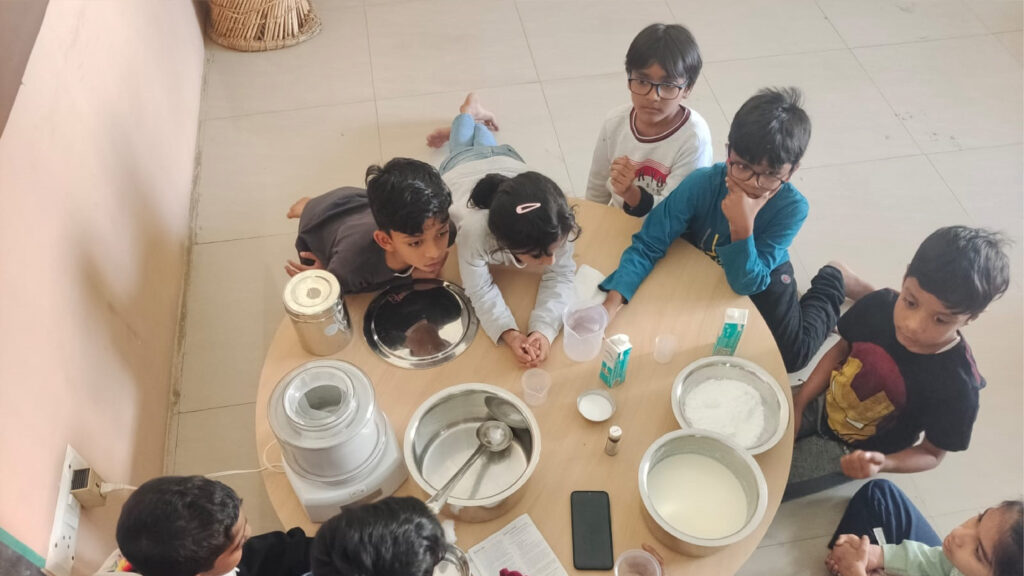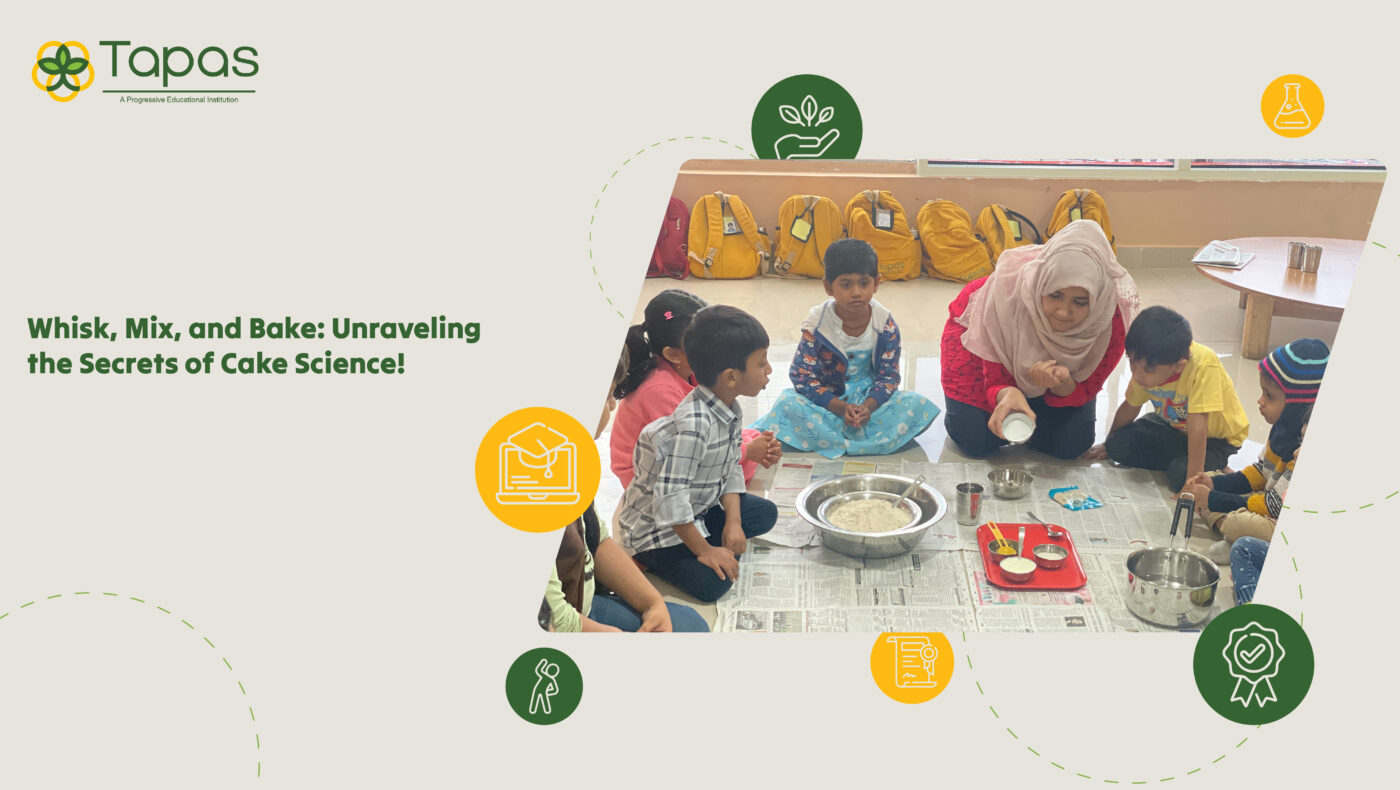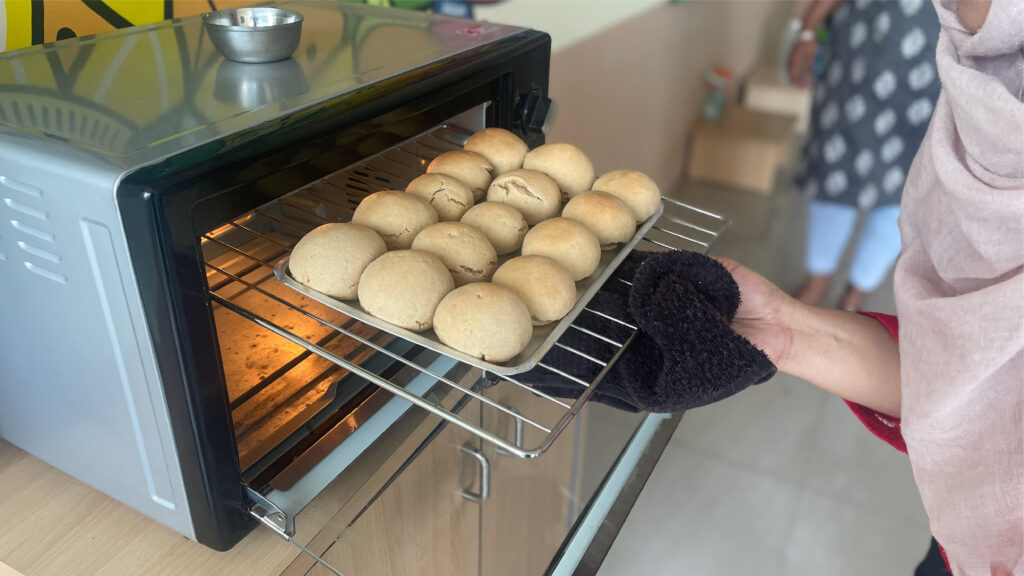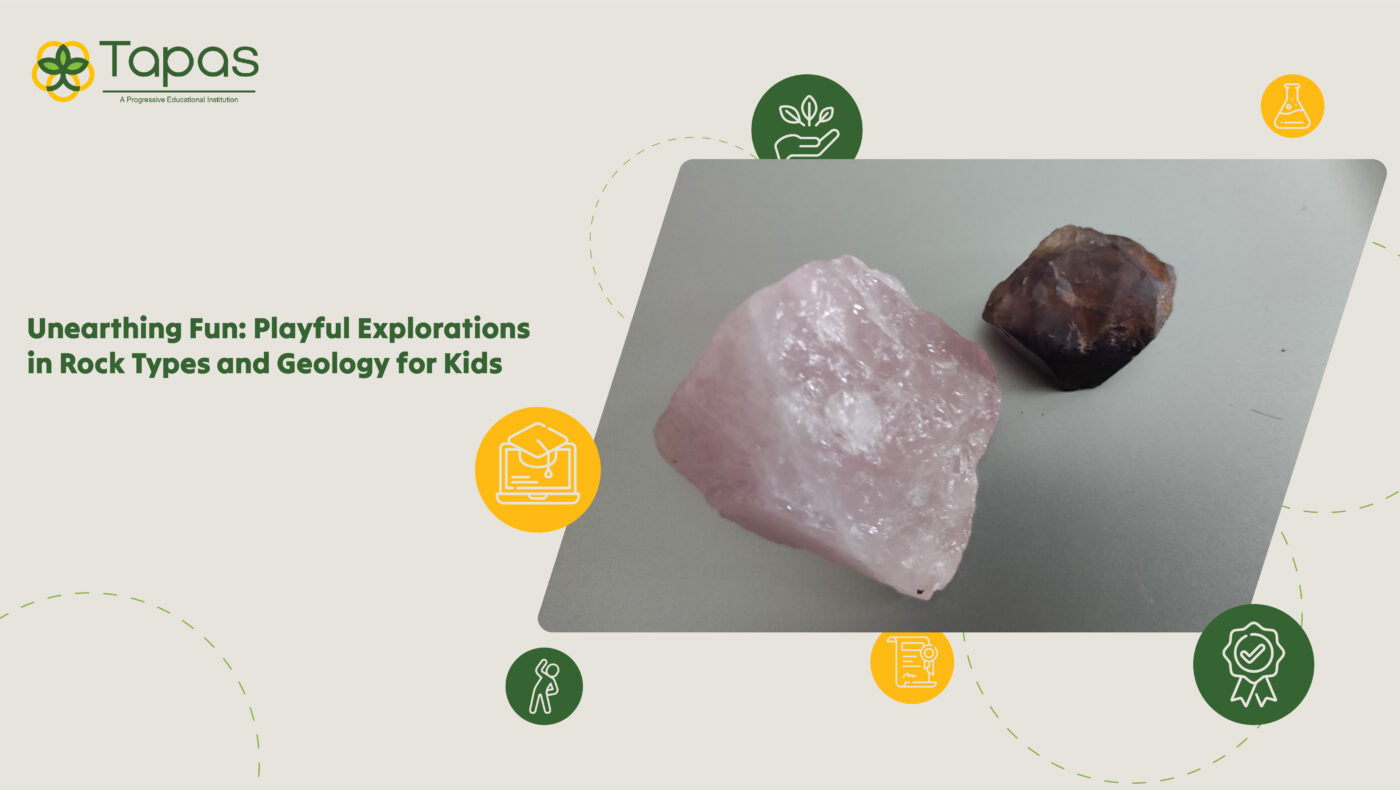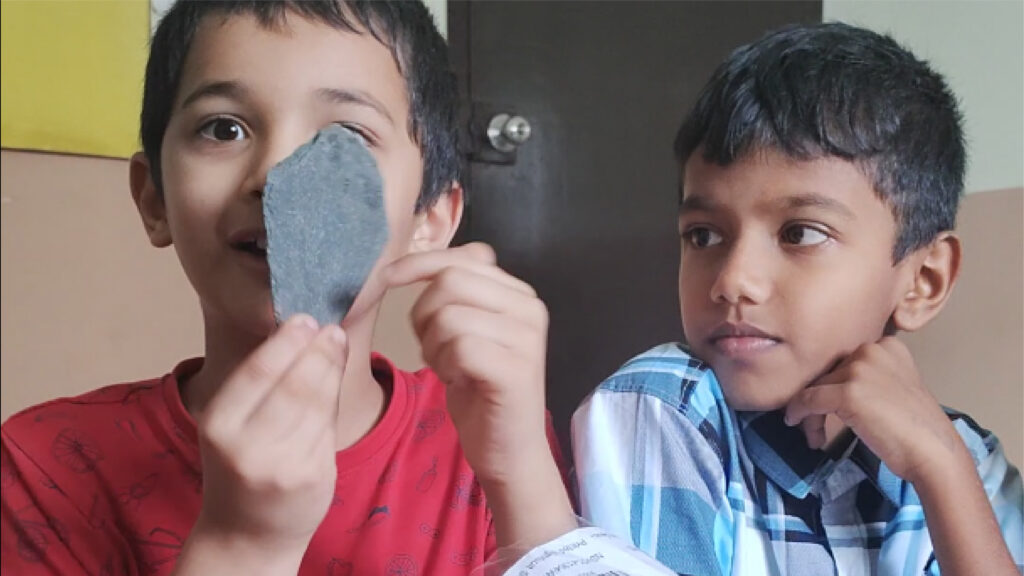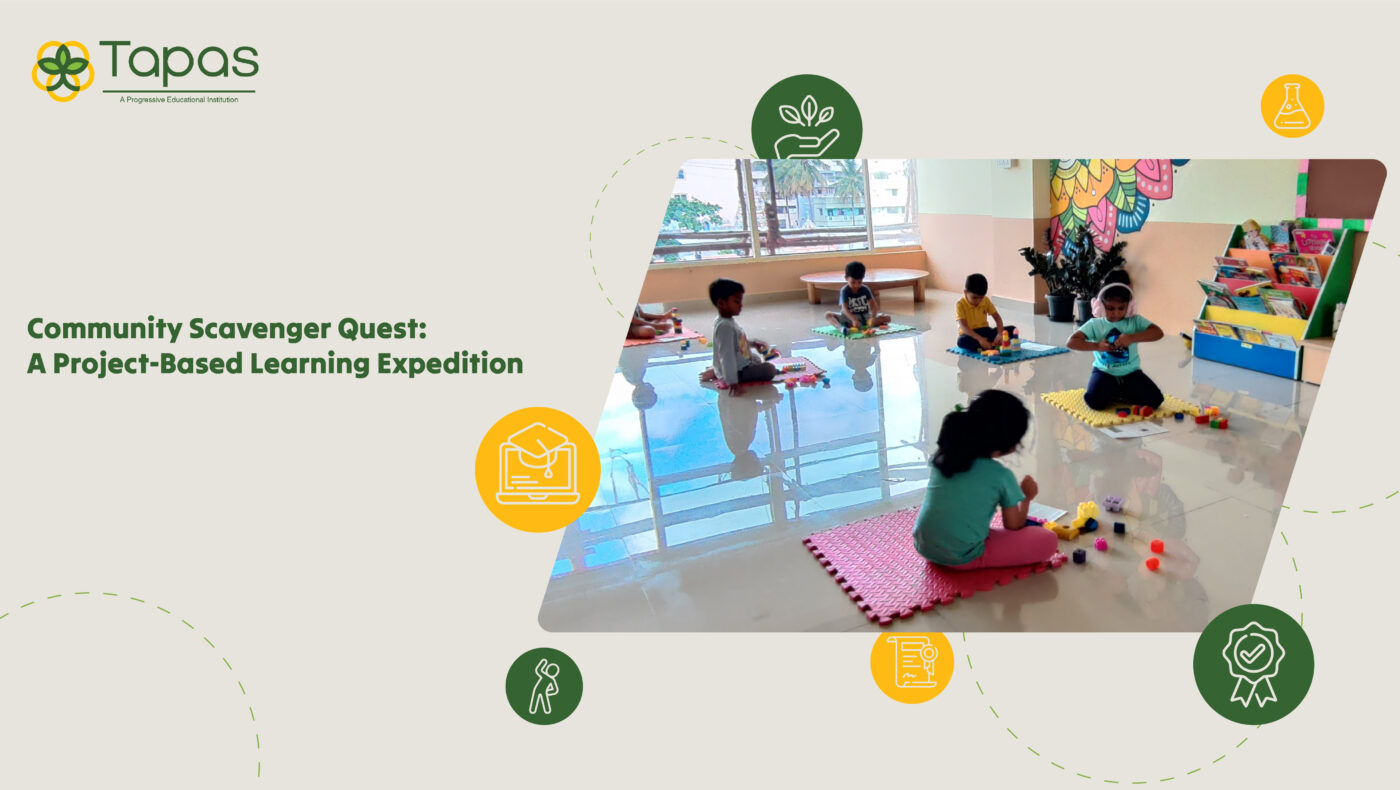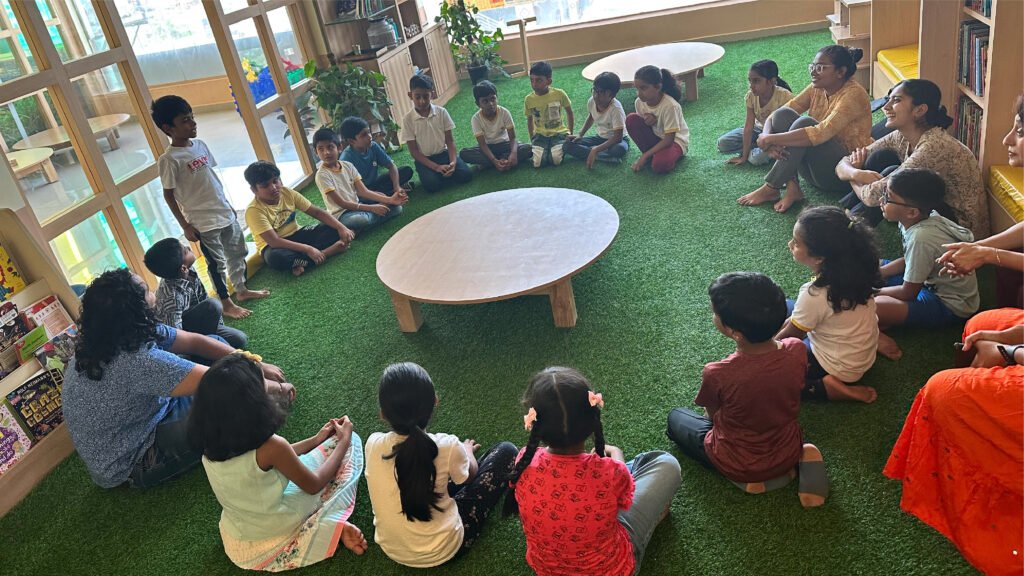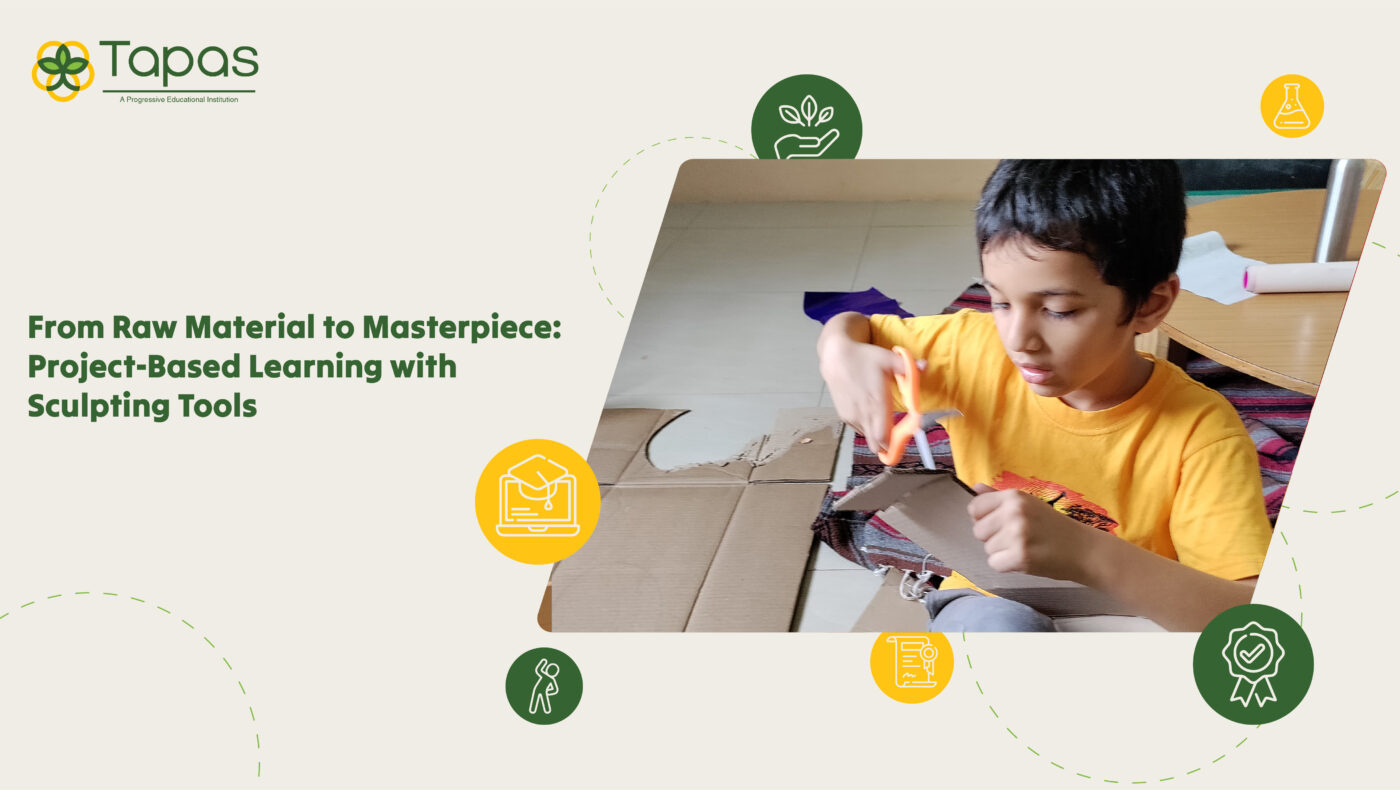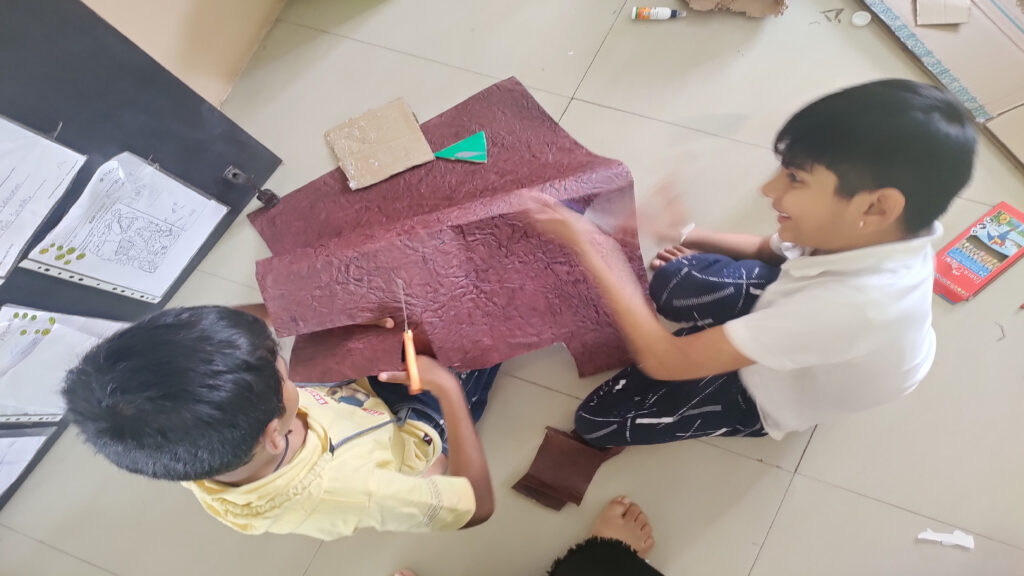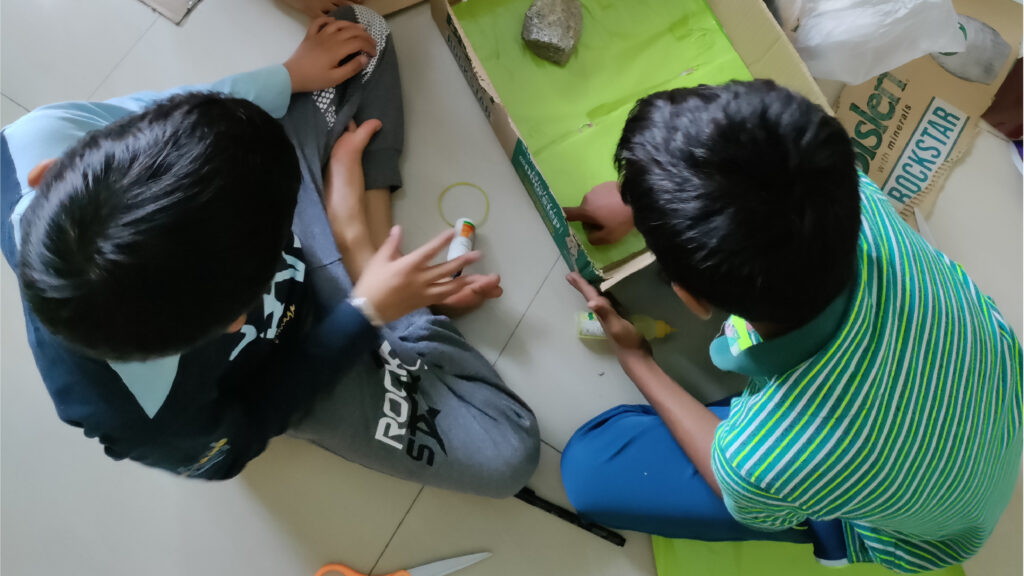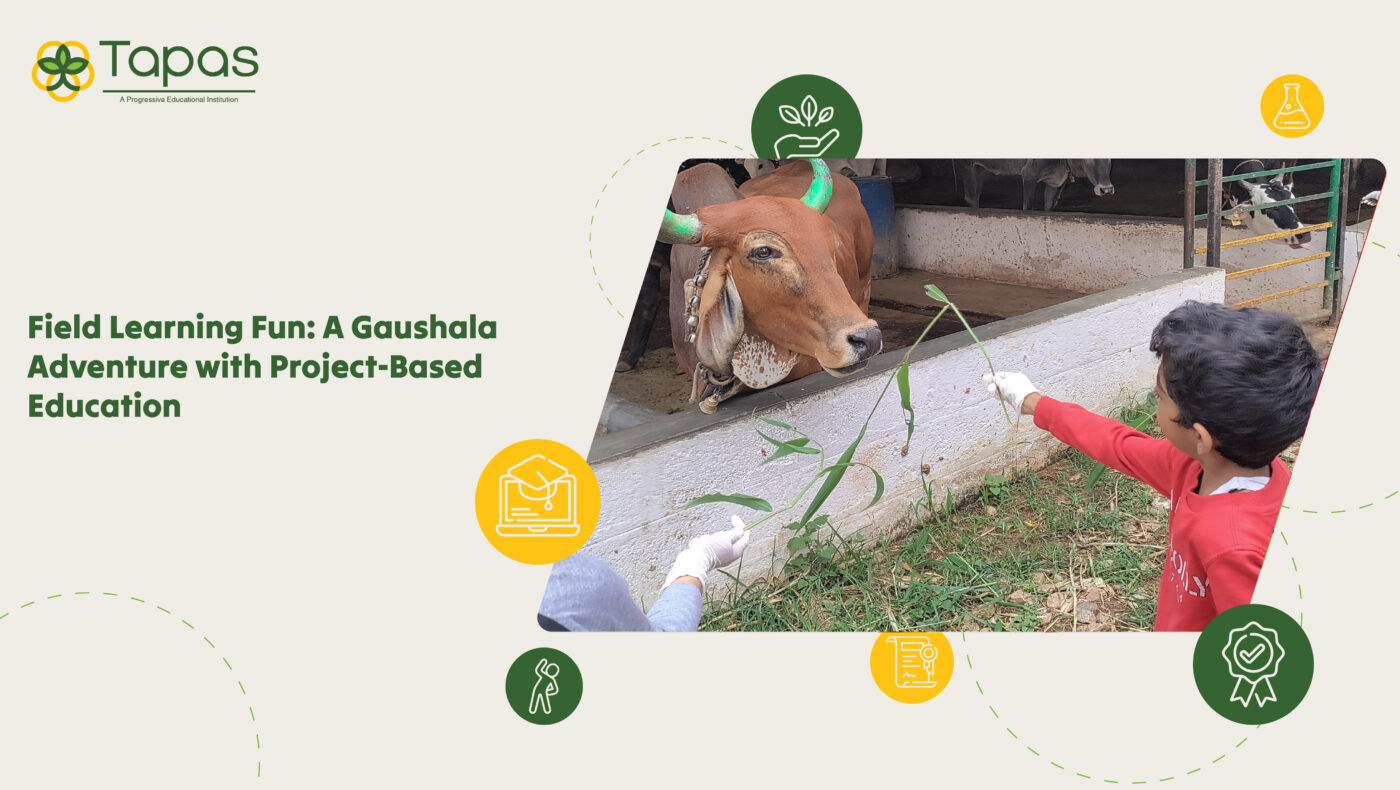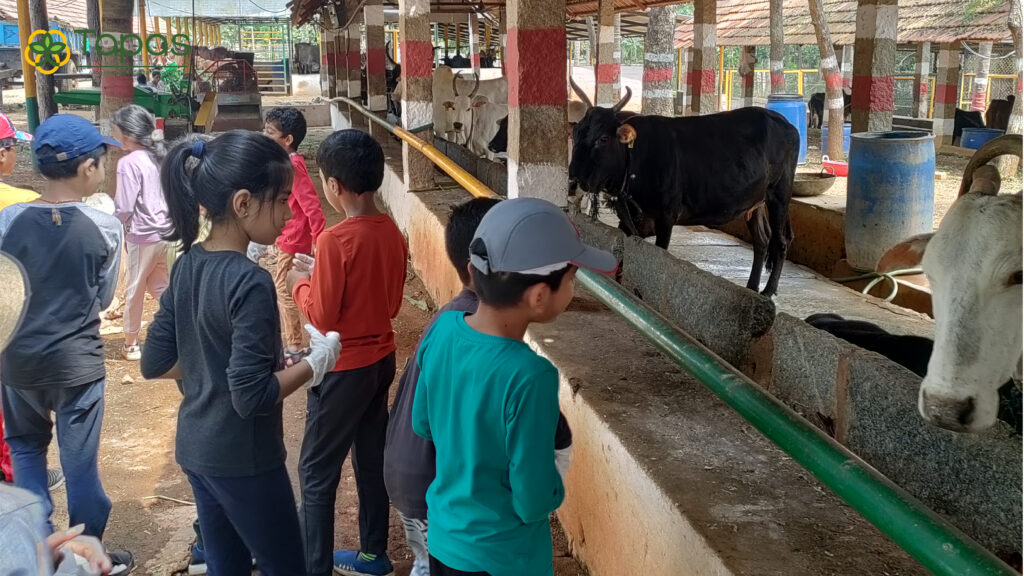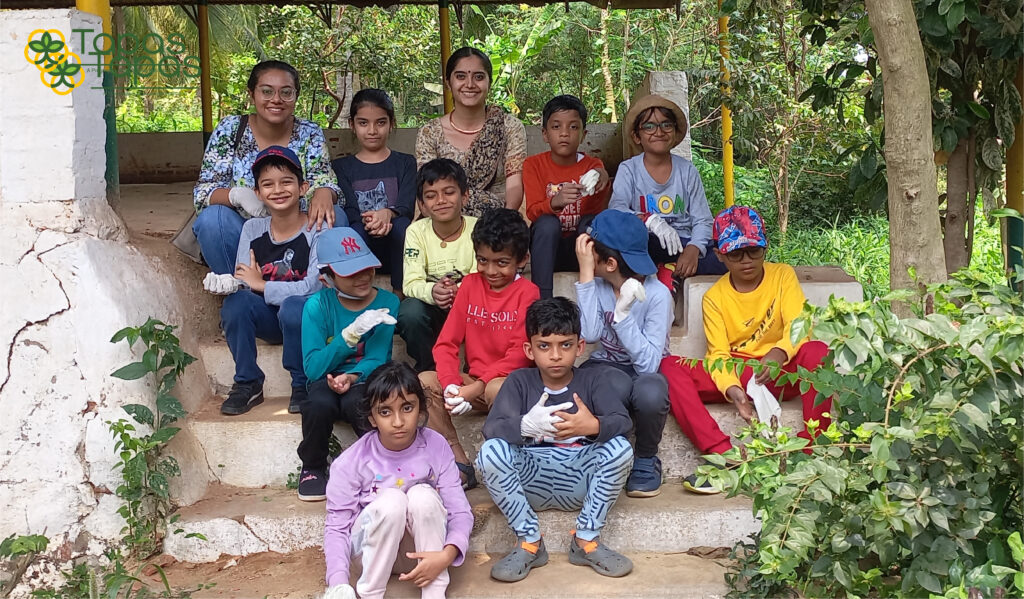From Concept to Reality: PBL’s Journey in Education
Project-Based Learning (PBL) represents a cornerstone of student-centric education, shifting the traditional classroom dynamic towards a more engaging and interactive learning environment. At its core, PBL emphasizes the importance of students diving into real-world and meaningful projects, fostering a deeper understanding and retention of knowledge. This innovative approach encourages critical thinking, collaboration, and problem-solving skills, making learning more relevant and impactful. By centring on the student’s interests and needs, PBL epitomizes the essence of student-centric education, preparing learners for real-life challenges.
Tapas Education is dedicated to revolutionizing the educational landscape by integrating PBL best practices into their innovative learning solutions. Their commitment to enhancing education through project-based learning methodologies is evident in the development and deployment of cutting-edge resources and tools designed to facilitate immersive, real-world learning experiences. By aligning closely with the principles of PBL, Tapas Education ensures that educators and students alike benefit from an enriched learning environment that prioritizes practical skills, critical thinking, and collaborative problem-solving.
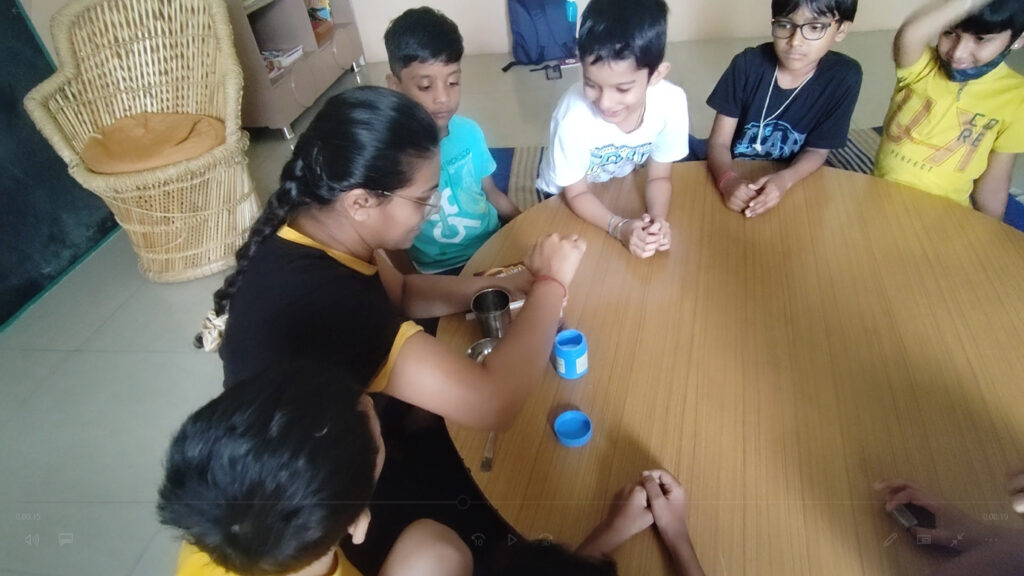
The Emergence of PBL
The Project-Based Learning (PBL) journey finds its origins deeply rooted in the progressive education philosophies of the late 19th and early 20th centuries. Visionaries like John Dewey advocated for educational reforms that emphasized learning through doing, arguing that students should engage directly with their environment to gain practical skills and knowledge. This marked a significant departure from the traditional, teacher-centered approach to education, which focused more on rote memorization than on fostering critical thinking and problem-solving abilities.
As the concept evolved, PBL emerged as a distinct approach in the latter half of the 20th century, gaining momentum as educators worldwide sought more effective methods to prepare students for the complexities of the modern world. The Project-Based Learning Journey has since been characterized by its emphasis on student-led inquiry, interdisciplinary learning, and the application of knowledge to solve real-world problems, embodying the ideals of progressive education by promoting active, engaged, and meaningful learning experiences.
The educational landscape has witnessed a significant shift from traditional rote learning to dynamic, student-centered learning experiences, thanks in large part to the implementation of Project-Based Learning (PBL) methodologies. This transformation is characterized by a move away from memorization and passive learning, towards an environment where students actively engage with the material, collaborate with peers, and apply their knowledge to solve complex, real-world problems. PBL implementation has been pivotal in fostering critical thinking, creativity, and a deeper understanding of subjects.
Tapas Education has been at the forefront of this educational revolution, seamlessly integrating PBL methodologies into its offerings. The organization recognizes the value of hands-on, experiential learning and has dedicated itself to providing resources and tools that empower educators to adopt PBL principles effectively. Through its commitment to PBL implementation, Tapas Education is not just contributing to the shift towards more engaging and meaningful educational experiences but is also shaping the future of learning to be more adaptable, innovative, and student-centered.
PBL’s Impact on Learning
Learning through projects, a cornerstone of Project-Based Learning (PBL), brings a multitude of benefits that significantly contribute to the holistic development of students. At the heart of project development in education, PBL fosters an environment where critical thinking is not just encouraged but required. Students are tasked with navigating complex problems, necessitating a deep dive into analytical thinking and decision-making processes. This emphasis on critical thinking helps learners develop the ability to assess situations from multiple perspectives and devise innovative solutions.
Moreover, collaboration is another key benefit of PBL. Learning through projects often involves team-based work, where students must communicate effectively, delegate tasks, and work together towards a common goal. This collaborative environment mirrors the real-world, preparing students for future professional settings where teamwork and interpersonal skills are paramount.
Additionally, PBL enhances problem-solving skills. Through the process of project development in education, students encounter real-life challenges that they must overcome. This not only requires technical knowledge and creativity but also resilience and adaptability. By engaging in PBL, students learn to approach problems methodically, think outside the box, and persist in the face of obstacles, equipping them with essential skills for lifelong success.
Recent educational research underscores the efficacy of Project-Based Learning (PBL) in enhancing student outcomes across a range of metrics. For instance, a study published in the Journal of Educational Psychology found that students engaged in PBL methodologies exhibited a 23% increase in academic achievement compared to their peers in traditional learning settings. This statistic highlights the powerful impact of experiential learning on understanding and retaining complex concepts.
Furthermore, research by the Buck Institute for Education demonstrates that PBL not only boosts academic performance but also significantly improves students’ collaboration and problem-solving skills—key competencies in today’s workforce. According to their findings, students participating in PBL were 35% more likely to demonstrate higher problem-solving skills and a 30% increase in effective collaboration abilities when compared with peers following a conventional curriculum.
Moreover, a longitudinal study tracking student performance over several years revealed that those engaged in PBL settings were more adept at applying their knowledge in real-world scenarios, showcasing a 40% improvement in practical application skills over non-PBL counterparts. This supports Tapas Education’s emphasis on PBL as a means to bridge the gap between theoretical knowledge and practical application, preparing students for the challenges of the modern world.
By aligning its educational offerings with these proven benefits of PBL, Tapas Education is not just advocating for a shift in teaching methodologies but is actively contributing to a more effective, engaging, and relevant educational experience for learners.
Implementing PBL with Tapas Education
Tapas Education plays a pivotal role in facilitating PBL implementation within educational institutions by offering a comprehensive suite of tools, resources, and training programs specifically designed to empower educators and schools. Recognizing the challenges associated with shifting towards a project-based learning model, Tapas Education provides educators with access to a rich repository of curated project templates, lesson plans, and assessment rubrics that align with PBL best practices. These resources are crafted to integrate seamlessly into various curricular areas, ensuring educators can adopt PBL methodologies without compromising on curriculum standards.
Moreover, Tapas Education offers specialized training sessions and workshops for educators, focusing on the nuances of PBL implementation. These training programs are tailored to equip teachers with the skills needed to design, facilitate, and assess project-based learning experiences effectively. Through hands-on training, educators learn to create engaging and meaningful project-based activities that foster critical thinking, collaboration, and problem-solving among students.
Additionally, Tapas Education provides ongoing support to institutions, including consultation services to help schools develop a strategic approach to PBL adoption. This support ranges from helping to establish a PBL-friendly culture within the school to advising on the integration of technology and digital tools that enhance project-based learning experiences. By partnering with Tapas Education, educators and institutions are assured a robust support system that not only facilitates the initial transition to PBL but also ensures its sustained success and impact on student learning.
Tapas Education is committed to simplifying the Project-Based Learning Journey, ensuring its integration into educational systems is both seamless and impactful. With a dedicated support system, Tapas Education offers step-by-step guidance, from initial planning to full implementation, making PBL adoption straightforward for educators and institutions alike. Their comprehensive resources, tailored training, and ongoing consultancy services are designed to address any challenges head-on, ensuring educators feel fully supported at every stage of their PBL journey. This approach underscores Tapas Education’s dedication to fostering successful, sustainable PBL environments that enhance learning outcomes for students.
- Customized Learning Platforms: Tapas Education offers uniquely tailored learning management systems that are optimized for Learning through Projects, enabling educators to design, manage, and assess PBL activities in an interactive and student-friendly environment. These platforms support multimedia content, real-time feedback, and collaborative tools, enhancing the PBL experience for both teachers and students.
- Expert Consultancy: A standout feature of Tapas Education is its access to expert consultants who specialize in PBL. These professionals work closely with schools to develop and refine PBL strategies, ensuring Learning through Projects is effectively integrated into the curriculum and aligned with educational goals.
- Professional Development Workshops: Tapas Education provides comprehensive professional development opportunities focused on PBL, including workshops and training sessions led by seasoned PBL practitioners. These programs are designed to equip educators with advanced skills in project design, student engagement, and assessment strategies tailored to Learning through Projects.
- Resource Library: An extensive library of PBL resources, including project templates, case studies, and research articles, is available through Tapas Education. This curated collection supports educators in finding inspiration and practical tools for Learning through Projects, fostering a rich and varied PBL environment.
- Technology Integration Support: Recognizing the importance of technology in modern education, Tapas Education offers support for integrating digital tools and resources into PBL activities. This includes recommendations on the best educational technologies to enhance project engagement and outcomes, ensuring a smooth blend of traditional learning with modern tech.
- Community Collaboration Platforms: To foster a sense of community and collaboration among PBL practitioners, Tapas Education provides access to online forums and networks where educators can share experiences, challenges, and successes in Learning through Projects. This peer support system enriches the PBL journey for educators by allowing them to learn from and support one another.
These unique features and services position Tapas Education as a leader in facilitating effective and engaging PBL experiences, underscoring its commitment to revolutionizing education through innovative, project-based learning solutions.
Tapas’s initiative in ‘Bringing Republic Day to Life in the Classroom’
Incorporating the concept of Republic Day into a project-based learning (PBL) framework transforms abstract values like freedom, equality, and justice into tangible experiences for children. This approach moves beyond traditional teaching methods, allowing students to deeply engage with the principles that underpin our country’s foundation. Through PBL, learners actively connect with our nation’s history and heritage, fostering a profound sense of pride and a personal connection to the ideals of the Republic.
Project-based learning emphasizes the application of knowledge to real-world scenarios, making the abstract concepts of civic responsibility and democracy accessible to young minds. For instance, by participating in simulated elections, students not only learn about the democratic process but also experience the importance of having a constitution and the role it plays in governing democratic operations. This hands-on experience cultivates an understanding of the mechanics of democracy and the significance of each individual’s participation in a democratic society.
The PBL approach to teaching about Republic Day encourages students to explore the sacrifices made for our freedom, instilling a deep respect for those who fought for the rights and liberties we enjoy today. It also highlights the importance of being active, responsible members of a democratic society, laying the groundwork for responsible citizenship.
Through project-based learning, the essence of Republic Day is brought to life, allowing students to explore, question, and understand the value of their heritage and the responsibilities that come with it. This method bridges the gap between theoretical knowledge and practical application, enabling students to grasp the real-world implications of the values celebrated on Republic Day, thus transforming the concept of civic education from an abstract idea into a lived reality.
Challenges and Solutions
Adopting Project-Based Learning (PBL) presents several challenges that educational institutions must navigate to ensure successful project development in education. Resource constraints are a significant hurdle, as PBL often requires access to a variety of materials, technologies, and spaces that facilitate hands-on, experiential learning. Schools may find it challenging to allocate the necessary funds and resources to support these dynamic learning environments.
Teacher training is another critical challenge. Effective PBL implementation demands a shift from traditional teaching methods to a more facilitative role that guides students through their project journeys. Educators need comprehensive training to develop the skills and confidence required to manage PBL classrooms effectively, including project planning, student mentoring, and assessment of project-based work.
Furthermore, curriculum alignment poses a complex challenge. Integrating PBL into existing curricula requires careful planning to ensure that projects align with educational standards and learning objectives. Educators must balance the flexibility and creativity inherent in PBL with the need to meet specific curriculum goals, which can be a delicate and time-consuming process. Addressing these challenges is essential for fostering an environment where project development in education can thrive, leading to meaningful and engaging learning experiences for students.
Tapas Education adeptly addresses the challenges of implementing Project-Based Learning (PBL) by offering practical solutions grounded in PBL best practices, demonstrating remarkable adaptability to various educational contexts. Here’s how Tapas Education tackles these common hurdles:
- Resource Constraints: Understanding the resource limitations many schools face, Tapas Education has developed cost-effective PBL solutions, including digital resources and virtual project environments that reduce the need for physical materials. They also guide schools in leveraging existing resources creatively, ensuring that PBL is accessible and sustainable.
- Teacher Training: To equip educators with the necessary skills for PBL, Tapas Education offers comprehensive professional development programs. These include workshops, online courses, and ongoing support that cover PBL best practices, project design, and student assessment. By prioritizing educator readiness, Tapas Education ensures that teachers can confidently facilitate project-based learning experiences.
- Curriculum Alignment: Tapas Education assists schools in integrating PBL with existing curricular goals through customized consultancy services. They provide expertise in aligning projects with state and national standards, ensuring that PBL enhances rather than disrupts educational objectives. Their approach includes the development of interdisciplinary projects that connect various subject areas, enriching students’ learning experiences while meeting curriculum requirements.
By addressing these challenges with targeted solutions, Tapas Education showcases its commitment to making PBL a viable and effective educational strategy across diverse settings. Their emphasis on PBL best practices, coupled with their adaptive solutions, empowers schools to overcome obstacles and fully embrace the benefits of project-based learning.
The Future of Education with PBL and Tapas Education
As we look towards the future, Project-Based Learning (PBL) is poised to play a pivotal role in the evolution of student-centric education. This methodology, with its emphasis on real-world problem-solving, collaboration, and critical thinking, aligns perfectly with the growing demand for educational models that prepare students for the complexities of the modern world. PBL’s adaptability to digital technologies and online learning environments will further cement its importance, enabling personalized and accessible learning experiences for students everywhere.
The integration of artificial intelligence and virtual reality into PBL could offer immersive and interactive learning scenarios, pushing the boundaries of student engagement and experiential learning. Furthermore, as the global challenges facing society become more intricate, PBL will likely focus increasingly on sustainability, global citizenship, and ethical considerations, preparing students not just as job-ready graduates but as informed, responsible global citizens.
The future of PBL in shaping student-centric education is not just about academic achievement; it’s about fostering a generation of learners equipped to tackle the world’s challenges with empathy, innovation, and resilience. As PBL evolves, it will undoubtedly continue to redefine the educational landscape, making learning more relevant, engaging, and impactful for students worldwide.
Tapas Education stands at the forefront of educational innovation, leading the charge towards crafting more innovative, effective, and engaging learning experiences through its steadfast commitment to Project-Based Learning (PBL). By harnessing the transformative power of PBL, Tapas Education not only aligns with the current needs of student-centric education but also anticipates the future directions of learning. Their approach is rooted in providing dynamic, real-world problem-solving opportunities that prepare students for the challenges of tomorrow.
Through the development of customized learning platforms, expert consultancy, and comprehensive support for educators, Tapas Education embodies the essence of a pioneer in the educational field. They are not just participants in the dialogue around educational reform; they are actively shaping the narrative by demonstrating how PBL can be effectively integrated into diverse educational settings.
Tapas Education’s role in leading this educational evolution is critical. By advocating for and implementing PBL strategies, they are setting new benchmarks for what learning can and should look like. Their efforts ensure that education remains relevant, adaptive, and impactful, preparing a new generation of learners to succeed in an ever-changing world. As they continue to innovate and push the boundaries of traditional education, Tapas Education’s influence will undoubtedly pave the way for a future where learning is driven by curiosity, critical thinking, and a deep engagement with the world around us.
Join Tapas Education in the transformative journey of embracing Project-Based Learning (PBL) to revolutionize education. By adopting PBL, you become part of a forward-thinking community committed to fostering innovative, effective, and deeply engaging learning experiences. Tapas Education is at the forefront, guiding this shift towards a more dynamic, student-centric educational landscape, and now is the perfect time for educators, institutions, and stakeholders alike to come aboard.
With Tapas Education, you have access to unparalleled resources, expert consultancy, and a supportive network designed to seamlessly integrate PBL into your educational framework. Whether you’re looking to enhance critical thinking, collaboration, or problem-solving skills among students, Tapas Education provides the tools and guidance necessary to make these goals a reality.
Embracing PBL with Tapas Education means not just participating in educational innovation but leading it. Together, we can prepare students for the complexities of the modern world, equipping them with the knowledge, skills, and mindset needed to succeed and thrive. Let’s transform education for the better, one project at a time. Join us in this crucial movement towards a brighter, more engaged, and capable generation of learners.
Learn More
Dive deeper into the world of Project-Based Learning (PBL) and discover how Tapas Education is leading the way in educational innovation by visiting our website at https://tapaseducation.com/. Here, you’ll find a wealth of information on PBL methodologies, success stories, and the unique solutions that Tapas Education offers to make learning more engaging, effective, and aligned with the demands of the 21st century.
We warmly invite educators, institutions, and stakeholders to reach out to us for partnerships, training, and resources to implement PBL in your educational settings. Tapas Education is dedicated to supporting you every step of the way, from initial planning to full-scale implementation, ensuring that you have everything you need to successfully integrate PBL into your curriculum.
Join us in our mission to transform education. Together, we can create a future where learning is not just about memorization but about inspiring curiosity, fostering creativity, and solving real-world problems. It’s time to move beyond traditional education models and embrace a more innovative approach that prepares our students for the challenges and opportunities of the future.
Let’s unite in this journey towards innovating education for a brighter, more enlightened future. With Tapas Education, you’re not just teaching; you’re igniting a flame of lifelong learning and opening doors to endless possibilities. The future of education is in our hands, and together, we can make it extraordinary.
Links
https://pubmed.ncbi.nlm.nih.gov/
